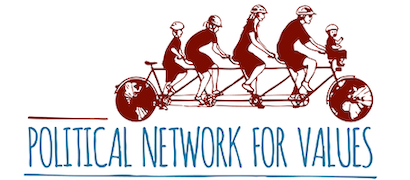Madrid | The Universal Declaration of Human Rights (UDHR) was created to be an instrument of freedom and it is urgent to propose a return to its roots, raising our voices and reminding the United Nations (UN); otherwise, we will be heading towards a totalitarian dystopia. This is the thinking of Brazilian diplomat Ernesto Araujo, former foreign minister in the government of Jair Bolsonaro and an expert geopolitical analyst.
We spoke with him in Spain on the eve of the V Transatlantic Summit that we held at the United Nations (UN) headquarters in New York, on the occasion of the 75th anniversary of the UDHR.
Is it a good idea to celebrate the 75th anniversary of the UDHR?
This, without a doubt, is a good time to recall the importance of the UDHR by stressing that it was meant to be an instrument of freedom. Moreover, proposing a return to the roots of the UDHR is urgent if we do not want the world to become a totalitarian dystopia.
The V Transatlantic Summit set out to do exactly that. The event was received with enthusiasm, but since it was convened at the UN headquarters, some accuse us of being “globalists.”
Conservatives need to fill that space. The UN must be a promoter of freedom, not totalitarianism, and it must be reminded of that; But it’s a tough fight. I fought during my tenure as foreign minister and I know that from experience. When you try to reintroduce freedom into the spaces of the United Nations, you are accused of various things and they go after you.
What led to the abandonment of the original meaning of the UDHR?
The UN forgot the dimension of freedom and consummated a tragedy. Let me explain: the United Nations system has two pillars: the Charter, which deals with war and peace among nations, and the UDHR, which deals with the dignity and freedom of the human person. Many people usually think only of the dimension of peace and forget the dimension of freedom, but it is impossible to have peace without freedom. Giving up freedom in order to have peace is a tragic illusion of our times.
Thus, the original purpose of the UDHR was distorted, the principle of freedom was set aside, and the United Nations system adopted a globalist or collectivist approach to issues such as “sustainable development” or in its response to pandemics. Again, going back to the roots of the UDHR is urgent.
What is the difference between globalization and globalism?
Globalization was a basically spontaneous economic phenomenon, derived from the opening of new markets in the early 1990s, which led to an expansion of investment and wealth around the world on the basis of freer competition, led to extraordinary technological advances and a better quality of life, including better food and health for the poorest population.
Globalism, on the other hand, is a set of political projects aimed at the centralization of power and total control over individuals under the pretext of solving “global issues” – or those that affect all countries – such as climate change, pandemics or migration. In some ways it’s the opposite of globalization, which saw a dispersion of power. In many ways globalism is analogous to communism, but by other means. Globalism is the communism of the 21st century.
Is a world with fewer freedoms taking shape?
The world is becoming more and more like China, and the political and economic elite in democratic countries are either silently contemplating this or contributing to the process. The Great Reset project of the World Economic Forum, for example, aims to have control societies. No one, or almost no one, is working for freedom. Clearly the UN is not doing so, but neither is the United States, nor the European Union, nor the Western elites. So, inevitably, human dignity is being violated and freedom is diminishing.
What ways out do you see? Is all lost or is there hope?
There is hope. Over the last 10 years people have become much more aware of the challenge they are facing. It’s a complicated job, as globalism is diffuse, it uses a lot of disguises. There is no “Globalist Manifesto” for you to easily recognize. You have to understand it in order to resist and overcome it.
It can be held back politically in countries that still have a free and fair voting system, as well as freedom of speech, very few today. Elsewhere it must be fought by spontaneous movements of society aimed at delegitimizing globalist totalitarian regimes. You always start with small breakthroughs.
•



